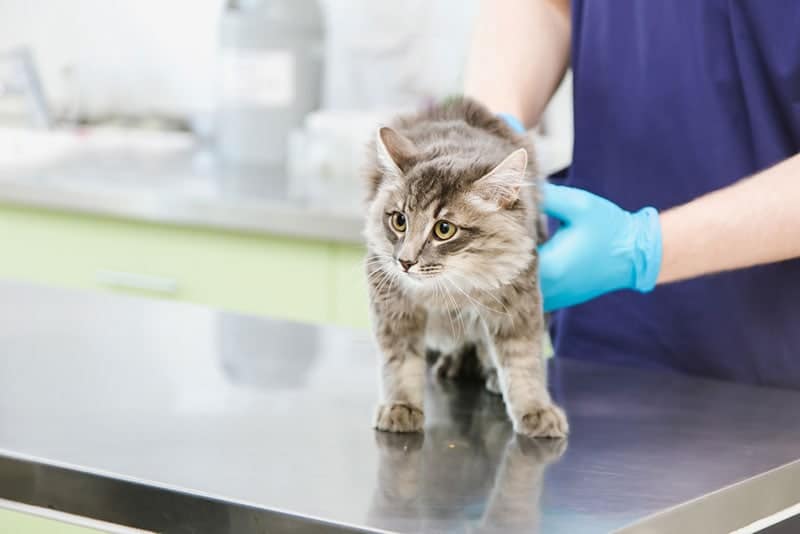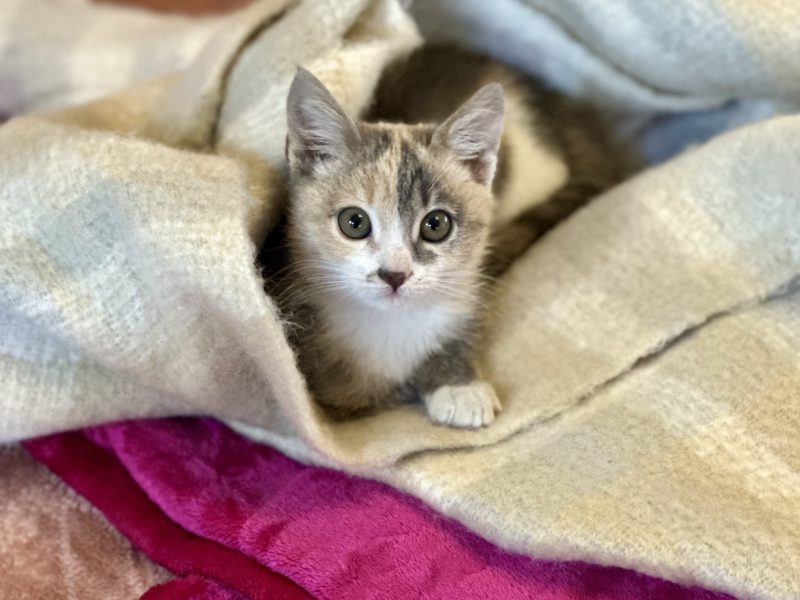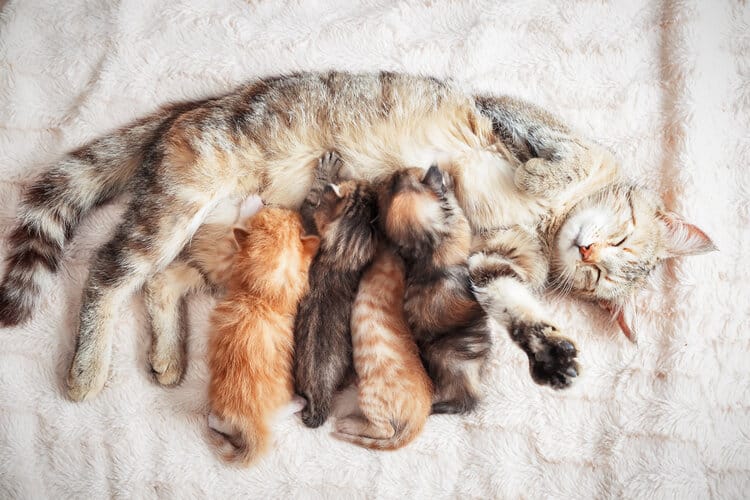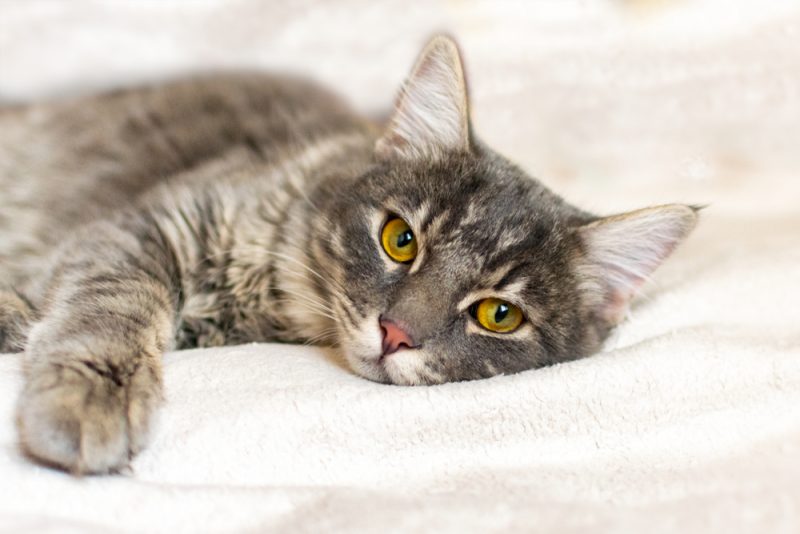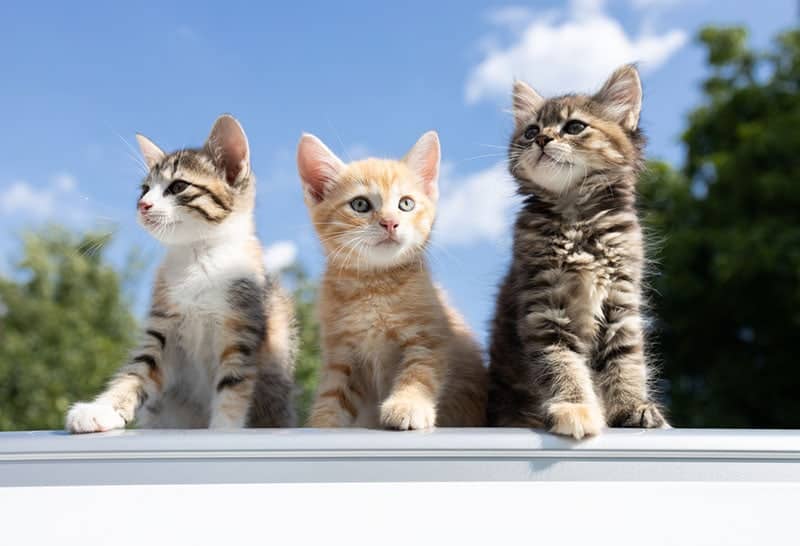What do cheetahs really sound like? Can they roar like the mighty lion, or do they simply purr like the average house cat? It may surprise you that they actually purr. One of the first things that you hear about cheetahs is how incredibly fast they are, which is true. Cheetahs are built for speed, and it plays a crucial part in helping them track down prey and escape danger themselves.
But they do have different aspects of their physical makeup that make them very different from other large cats such as the tiger, lion, or jaguar. In this article, we are going to discuss the noises that you can expect cheetahs to make and more about their life, physicality, and habitat.

So, Can Cheetahs Purr?
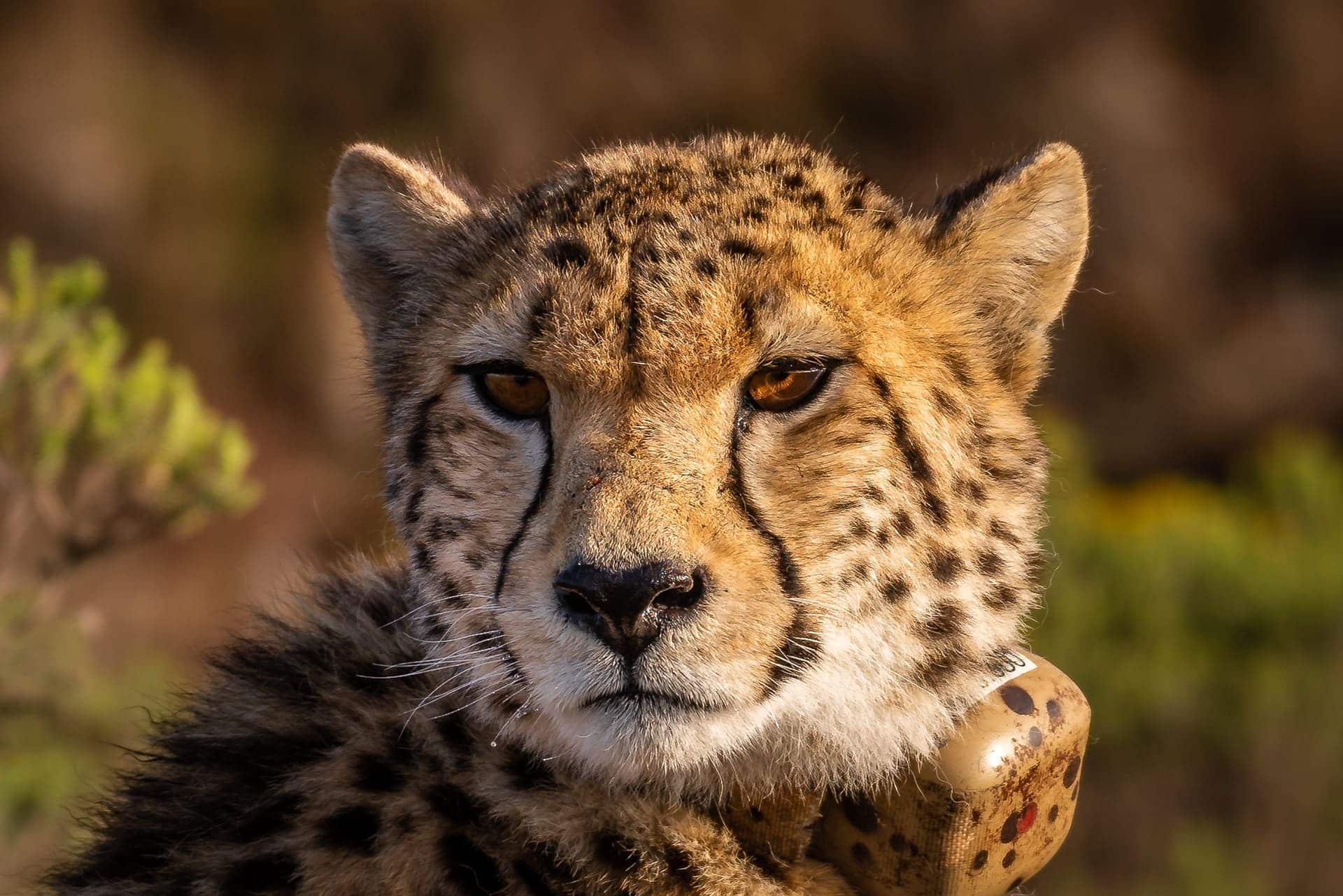
Cheetahs don’t roar like lions; they simply purr and meow just like regular house cats. Although these little big cats can weigh in at up to 160 lbs., their anatomy is in fact very similar to that of a small cat. Their vocal cords vibrate as they breathe in and out, so their voice box is fairly fixed. They do not have the ability to roar.
Why? It has much to do with their hyoid bone, located in the throat and supports the tongue and larynx. This small, thin bone is extremely rigid and ossified in small cats. The larynx vibrates and in turn, causes the hyoid bones to resonate. This creates a low-frequency sound which we know as “purring”. However, in big cat species, the hyoid bones are only partially ossified. This fundamentally alters what the animal can do to make noises.
Other Traits of Cheetahs
1. Physical Appearance
Cheetahs look very similar to leopards and even cougars, but they do have certain features that make them stand out. Cheetahs have small black spots that are almost completely covered on a background of pale yellow and a white underbelly. The prominent black lines running from the inner corner to the outer corners are a distinctive feature of their faces.
It almost looks like a trail of black ink tears. Cheetahs have a long, slim body that measures about 4 feet, and a tail measuring 2-3 feet that ends with white-yellowish hair. They measure approximately 2.5 feet at the shoulder and weigh between 75-120 pounds, with males slightly heavier than females.
2. Speed
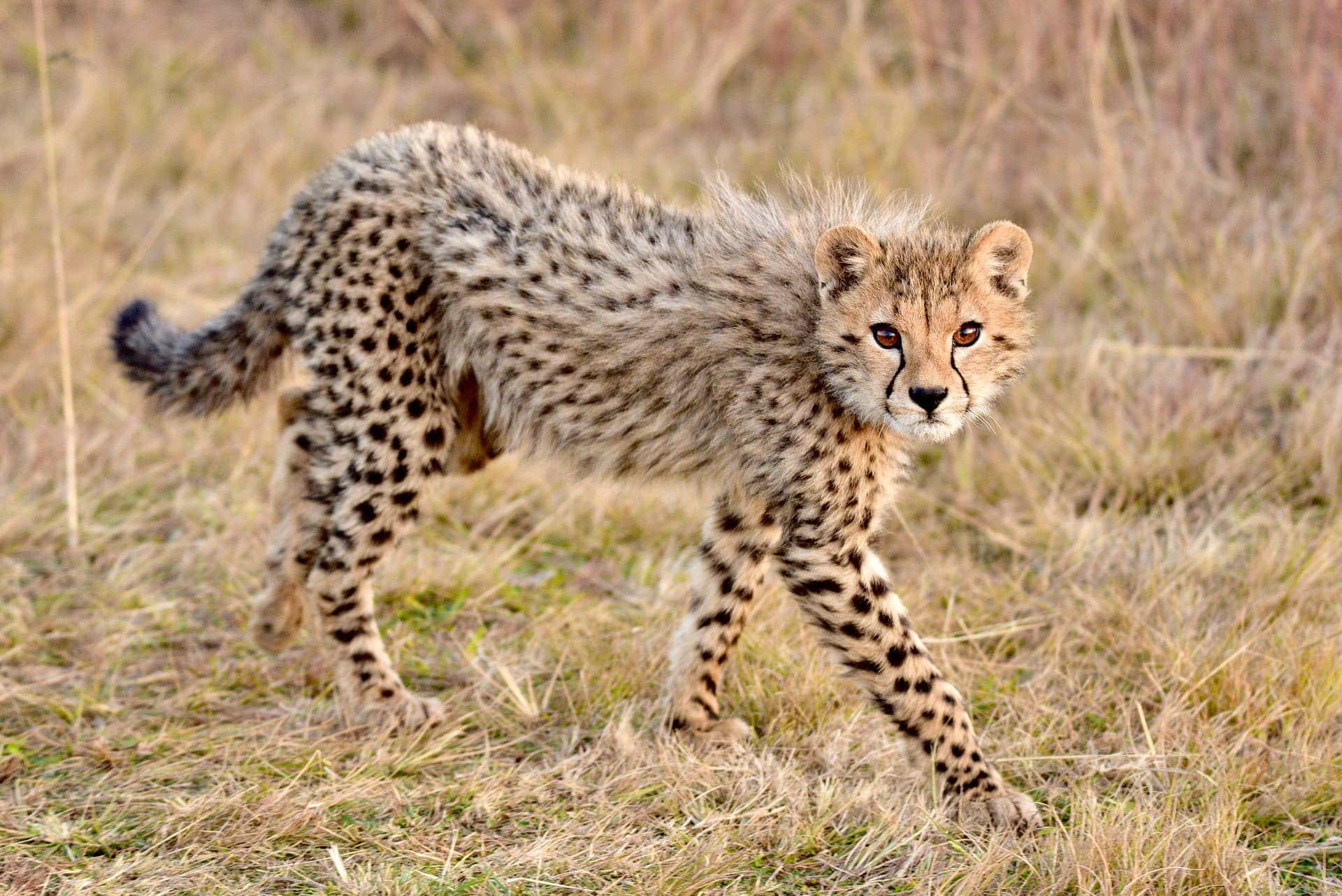
Without much debate, you’ll often hear that the biggest claim to fame of the cheetah is its speed. Its speed is not only unique among big cat species, but also among “Felidae” members, which includes leopards and cougars. The cheetah has a long tail that aids in balance and steering, and its hind legs are longer, allowing for leaps up to seven meters.
Their eyes rest high on its small, flattened skull, keeping their focus on prey during high-speed chases. Finally, its claws don’t retract all the way in, which gives them spike-like high-performance traction.
You may not be surprised that cheetahs actually can’t run fast for long distances. In fact, they spend much of their time following their prey, so they can catch them in a sprint — a mode of operation that allows them to avoid especially long chases.
If the chase is more than 0.27 miles long, cheetahs need to slow down and rest. Sometimes, cheetahs get so tired from a hunt that they have to take a break before eating their prey. This is often the case when they are catching large, fast prey such as gazelle, deer, or wildebeest.
3. Diet
Cheetahs hunt many different kinds of animals, including small to medium-sized hoofed animals such as gazelle, springbok, and warthogs. They can also hunt ground-dwelling birds, and small mammals like moles and rabbits. The male cheetahs form alliances to protect their territory and hunt larger prey like wildebeests, deer, or eland.
Cheetahs prefer fresh prey and are not known to scavenge, unlike many other African-based predators (such as wild dogs and hyenas). They’re known to eat fast and leave their kills when other predators are seen, especially in areas where large carnivores are abundant.
Around 10-13% of kills of cheetahs end up being taken, mostly by lions or spotted hyenas. Experts believe this is why cheetahs hunt at night when other predators are less active. To avoid losing prey to jackals, lions, leopards, and hyenas, prey is typically eaten quickly.
4. Habitat
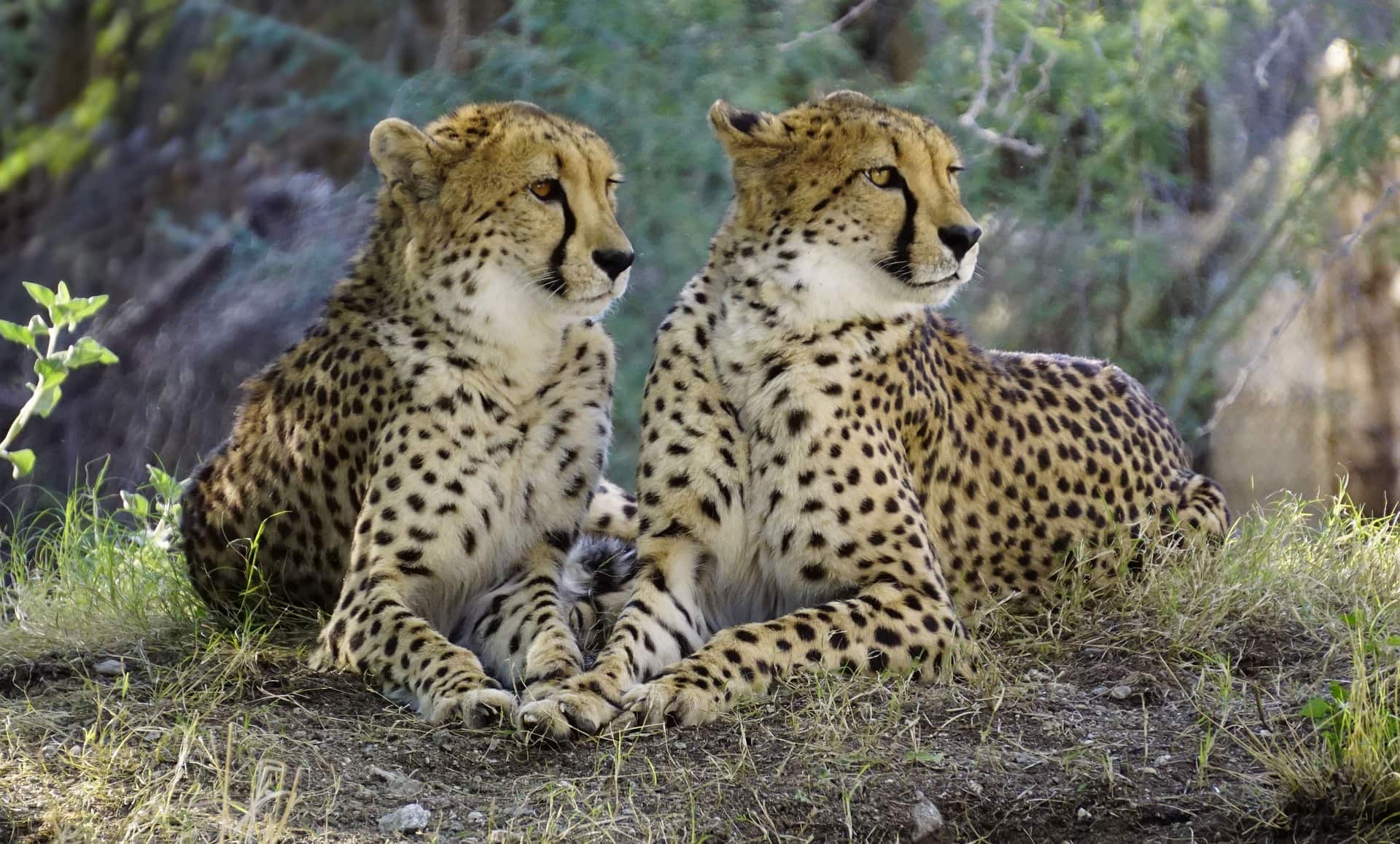
There are many habitats in which cheetahs can be found, including open, dry areas and wide-spanning grasslands, where they are most commonly seen. They also prefer to live in dense vegetation and upland areas.
Cheetahs prefer grassland areas that allow them to hide from their prey and move in quickly for a kill. However, you can find them hanging around any area where large herds of prey are gathering. They are usually seen slinking around the perimeter of these areas just waiting for the perfect time to strike in the evening or early morning.
5. Social Structure & Mating
Similar to lions, cheetahs are usually found in groups. A group is made up of either a mother and her children or a coalition of at least two or three males who are often brothers. Males and females rarely get together except for when they’re mates. Male coalitions, similar to lions, hunt and live together for their entire lives and may try to occupy an area that overlaps the range of several adult women.
When cheetahs mate, the mother gives birth to between two and seven cubs. Usually, they are born in an isolated spot under tall grass or thicker vegetation. The cubs are approximately little more than half a pound in weight at birth. Their dark, grayish yellow mane has a dense coat, a trait that provides better camouflage as well as increased protection against high temperatures during daylight hours and low temperatures at night.
Believe it or not, young cheetah cub mortality can reach up to 80-90% in the wild, sometimes due to other predators. And when the cubs are between 16-24 months of age, their mother will leave them. Also similar to lions, the resident male coalition chases young males away, when they reach sexual maturity at about 2 or 3 years of age.

Other Ways that Cheetahs Differ from Other Big Cats
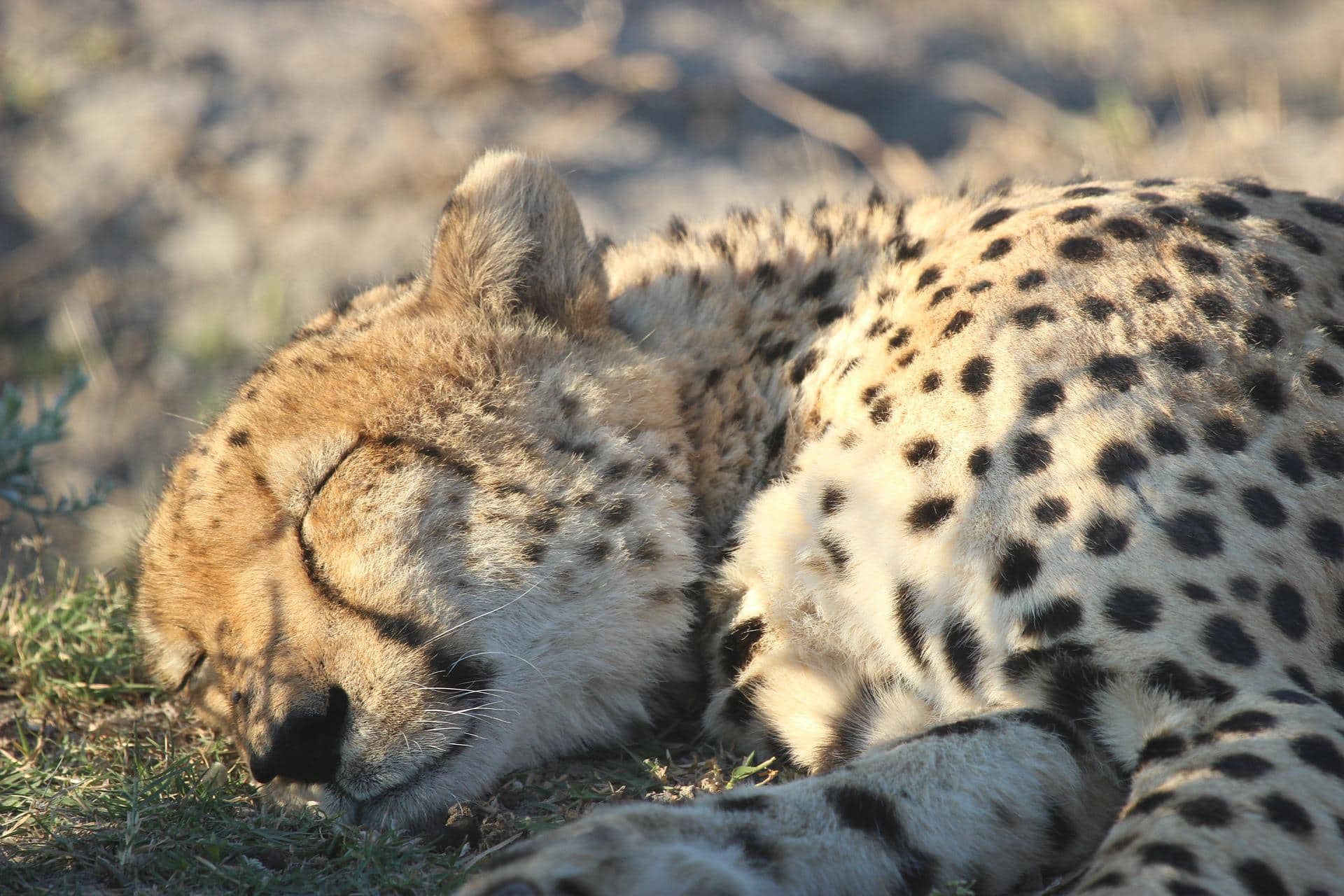
Cheetahs aren’t very strong when compared to other big cats, thanks to their long, slim bodies. Though they can definitely outrun other large cats that are designed to physically overwhelm their prey, they don’t have the strength or muscle of their feline counterparts, so their speed is their biggest advantage. If they could run away, cheetahs wouldn’t be able to win a fight against a lion or other tiger.
Another reason that cheetahs differ from other big cats is their lack of genetic diversity. Genetically, the approximately 8,000 remaining cheetahs in the world are identical, believe it or not, which isn’t ideal for reproduction. This makes them more susceptible to diseases and limits their ability to adapt to changing environments.
Are Cheetahs Going Extinct?
Cheetahs live for approximately 7 years in the wild, and anywhere from 8 to 12 years when kept in captivity. Once widespread in Africa, cheetahs also roamed central India and the Arabian Peninsula.
They are now only found in 8-10% of their historical range and have vanished from the majority of Africa’s continent. Multiple threats face the remaining cheetah population, including habitat loss and fragmentation as well as depletion of wild prey, conflict between humans and wildlife, and infrastructure development.

Wrapping Things Up
Cheetahs are especially fast animals, and probably one of the smallest species within the big cat realm. However, unlike other big cats, they don’t have the ability to roar, they can simply only purr. This is due to the way their hyoid bone and larynx were developed. But when it comes to habitat and social structure, cheetahs are in fact similar to other big cats as they are carnivores that hunt a variety of wild game.
Related Read:
Featured Image Credit: Glavo, Pixabay



